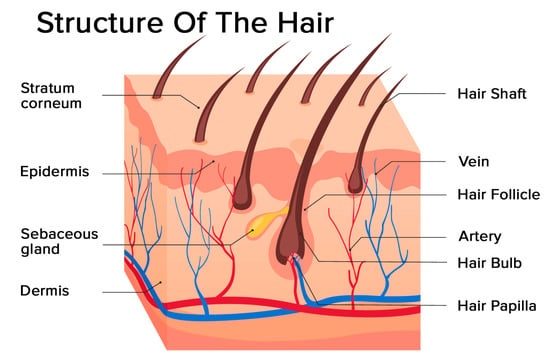Nelson Vergel
Founder, ExcelMale.com
Inhibiting a family of enzymes inside hair follicles that are suspended in a resting state restores hair growth, a new study from researchers at Columbia University Medical Center has found. The research was published today in the online edition of Science Advances.
In experiments with mouse and human hair follicles, Angela M. Christiano, PhD, and colleagues found that drugs that inhibit the Janus kinase (JAK) family of enzymes promote rapid and robust hair growth when applied to the skin.
The study raises the possibility that JAK inhibitors could be used to restore hair growth in forms of hair loss induced by male pattern baldness, and other types of hair loss that occur when hair follicles are trapped in a resting state. Two JAK inhibitors have been approved by the U.S. Food and Drug Administration. One is approved for treatment of blood diseases (ruxolitinib) and the other for rheumatoid arthritis (tofacitinib). Both are being tested in clinical trials for the treatment of plaque psoriasis and alopecia areata, an autoimmune disease that causes hair loss.
“What we've found is promising, though we haven't yet shown it's a cure for pattern baldness,” said Dr. Christiano. “More work needs to be done to test if JAK inhibitors can induce hair growth in humans using formulations specially made for the scalp.”
Source
They are two JAK inhibitors approved and 7 in clinical trials.
Janus kinase inhibitor
In experiments with mouse and human hair follicles, Angela M. Christiano, PhD, and colleagues found that drugs that inhibit the Janus kinase (JAK) family of enzymes promote rapid and robust hair growth when applied to the skin.
The study raises the possibility that JAK inhibitors could be used to restore hair growth in forms of hair loss induced by male pattern baldness, and other types of hair loss that occur when hair follicles are trapped in a resting state. Two JAK inhibitors have been approved by the U.S. Food and Drug Administration. One is approved for treatment of blood diseases (ruxolitinib) and the other for rheumatoid arthritis (tofacitinib). Both are being tested in clinical trials for the treatment of plaque psoriasis and alopecia areata, an autoimmune disease that causes hair loss.
“What we've found is promising, though we haven't yet shown it's a cure for pattern baldness,” said Dr. Christiano. “More work needs to be done to test if JAK inhibitors can induce hair growth in humans using formulations specially made for the scalp.”
Source
They are two JAK inhibitors approved and 7 in clinical trials.
Janus kinase inhibitor

















